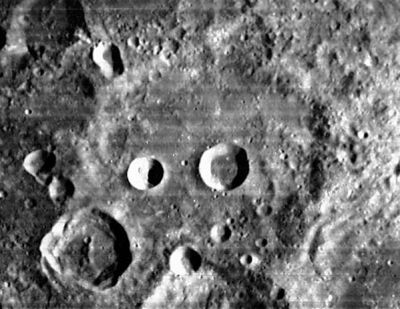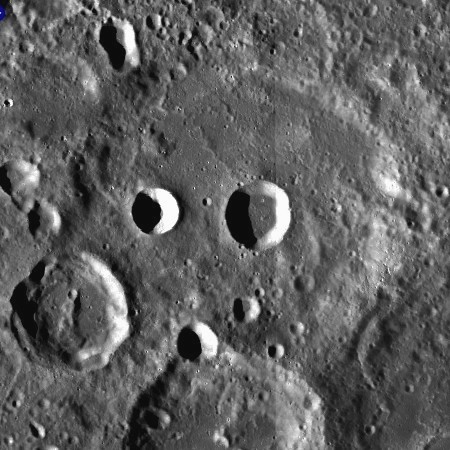Rayleigh
Contents
Rayleigh
|
Lat: 29.3°N, Long: 89.6°E, Diam: 114 km, Depth: 1.07 km, Rükl: 27 |
Table of Contents
[#Rayleigh Rayleigh]
[#Rayleigh-Images Images]
[#Rayleigh-Maps Maps]
[#Rayleigh-Description Description]
[#Rayleigh-Description: Wikipedia Description: Wikipedia]
[#Rayleigh-Additional Information Additional Information]
[#Rayleigh-Nomenclature Nomenclature]
[#Rayleigh-LPOD Articles LPOD Articles]
[#Rayleigh-Bibliography Bibliography]


left: Lunar Orbiter IV
right: LROC . Rayleigh is the eroded crater at center, with satellites B and D on its floor ; also visible are craters [/Urey Urey] at lower left and [/Lyapunov Lyapunov] at bottom center of image
Images
LPOD Photo Gallery Lunar Orbiter Images Apollo Images
Maps
(LAC zone 45B2) USGS Digital Atlas PDF
Description
Description: Wikipedia
Additional Information
Depth data from Kurt Fisher database
- Westfall, 2000: 1.07 km
Nomenclature
- John William Strutt, 3rd Baron Rayleigh (12 November 1842 – 30 June 1919) was an English physicist who (with William Ramsay) discovered the element argon, an achievement that earned him the Nobel Prize for Physics in 1904. He also discovered the phenomenon now called Rayleigh scattering and predicted the existence of the surface waves now known as Rayleigh waves.
- Name given by Arthur and Whitaker in Rectified Lunar Atlas (1963) and approved by IAU in 1964 (Whitaker, 1999, p234).
- On the farside map of Hallwag (and also on Antonin Rukl's farside map), this name (Rayleigh) was erroneously printed at the location of crater Minnaert.- DannyCaes DannyCaes Jun 19, 2010
LPOD Articles
Bibliography
This page has been edited 1 times. The last modification was made by - tychocrater tychocrater on Jun 13, 2009 3:24 pm - afx3u2